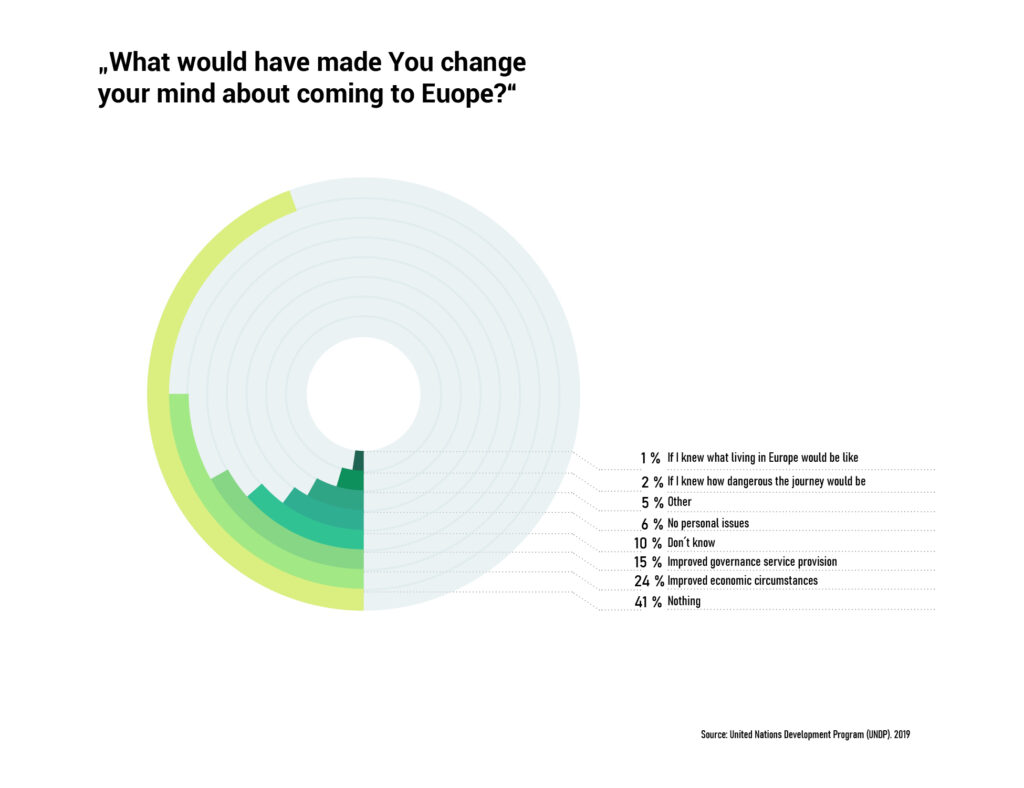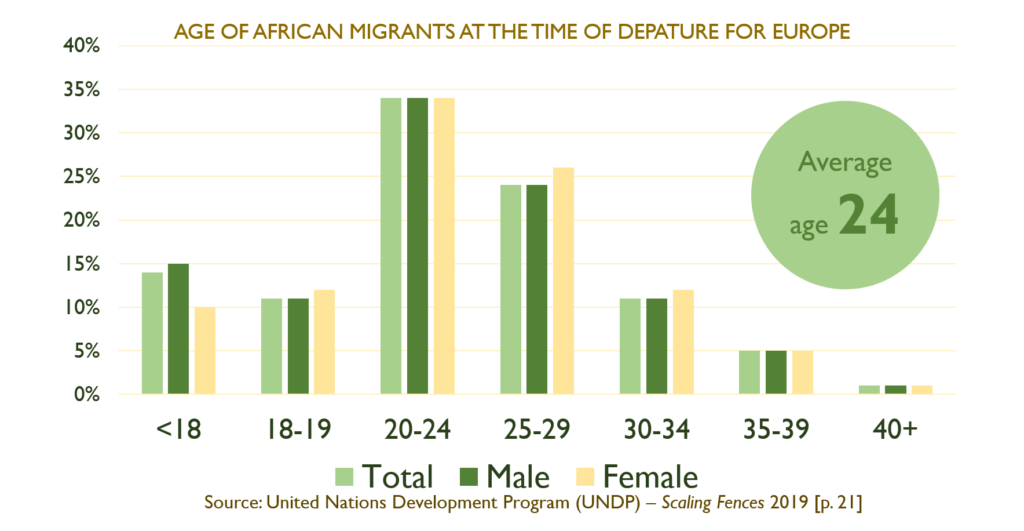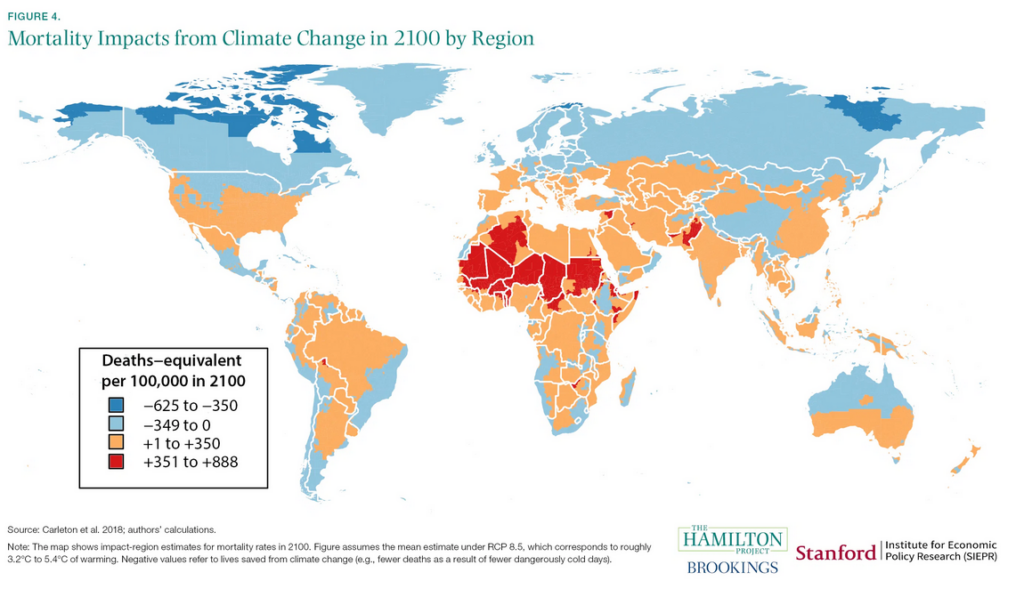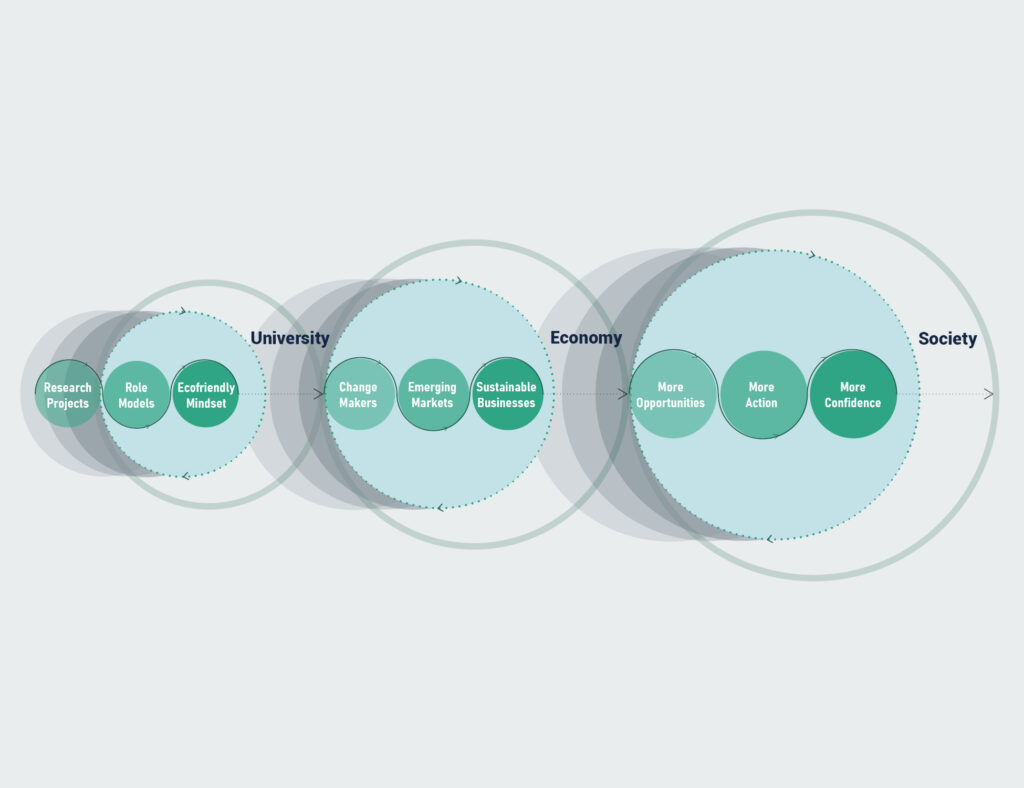Building the Future
There are many different descriptions of what is currently happening in many parts of Africa. “Migration of labour force”, "brain drain" and "educational migration" are some of them. We at the association know this phenomenon from our own experience. Contimi "Samuel" Kenfack Mouafo, the founder and president of the association, was born in Cameroon and came to Germany at the age of 19 to study electrical engineering. The reason for this was the lack of academic and professional perspectives in his home country. The challenges he faced in the form of a new language, a fundamentally different culture and a highly demanding course of study gave him no reason to think seriously about returning to his home country. Not because he didn't miss his home country, but rather because of the lack of perspektive.

Contimi is not the only person affected by this phenomenon. The above statistics are based on the results of the United Nations Development Program (UNDP) - Scaling Fences Reports of 2019, which surveyed illegal African migrants about their migration to Europe. While only 2% of respondents indicated that better knowledge of the dangers of travelling to Europe by land and sea could have deterred them from travelling in advance, 24% cited a lack of economic perspective in their home country as an argument for their migration. Particularly noteworthy, however, is the statement of the statistics that 41% of those questioned express a total lack of perspective by answering "Nothing". According to their answer, they would have undertaken the same dangerous journey under any other sign.
A sustainable framework
We want to act at the level of what we believe to be the most sustainable form of support and one of the most basic human rights: With education. In doing so, we follow a bottom-up approach, i.e. we want to find the young hope bearers who, despite a generally perceived lack of prospects or perspective, have decided to stay in their home country - or at least on their continent - and grow into potential role models and change makers. To this end, we focus on African students and doctoral candidates who are enrolled at African colleges or universities. We want to give them the opportunity to apply for funding and support for an environmentally sound research project. This will enable them to deepen and broaden their professional knowledge to solve self-defined local challenges by developing African solutions, which will additionally support them in qualifying for a possible career in the university environment, but also in the free economy. In our model, a professor from the respective African universities, together with other African and European volunteer experts, is responsible for assessing the feasibility, evaluating the projects and mentoring the African students and doctoral candidates. We as 3 E's 4 Africa e.V. ensure, in addition to funding the research projects, that all relevant actors are networked with each other and that the values that are important to us, which include a largely self-sufficient operation of the African students and partners, are prioritized and sufficiently taken into account.
Awakening the Potential
In addition to the humanitarian catastrophes caused by these hopeless attempts to escape, which are expressed in tragic scenarios in the Mediterranean, there is an almost more serious component. More than half of the illegal African migrants interviewed in the framework of the already mentioned United Nations Development Program (UNDP) - Scaling Fences Report of 2019 were under 25 years old at the time of departure from Africa to Europe. The largest group in percentage terms is the 20-24-year olds with almost 35 % of all respondents, the average age is 24 years. Future bearers of responsibility and hope, the "change makers" are leaving their home countries. The resulting medium to long-term consequences can only be guessed at. It might be true that not all these young people are potential changemakers, and the average age of many African countries is generally lower than the average of European countries. Nevertheless, these statistics show clear trends. And these are "only" the illegal migrants, a large part of the "brain drain" is not even considered. Contimi Kenfack Mouafo, a Cameroonian student in Germany, whose idea laid the foundation for 3 E's 4 Africa e.V., can confirm this observation from his own experience.

Strong, independent, Africa
Another important aspect that motivates us for the topic of empowerment in the context of Africa is an existing power gap in the structures of international politics and economics. The exchange between Europe and Africa is currently based in many areas on the fact that European institutions, non-governmental organizations, companies, and private individuals are involved in Africa within the framework of development cooperation. It seems downright abstruse if, for example, a Ghanaian citizens' initiative was to propose building wells in North Rhine-Westphalia to supply the inhabitants of a village in the Cologne catchment area with water. Conversely, however, these projects take place in large numbers. We at 3 E's 4 Africa e.V. can fully acknowledge the necessity of such projects due to the background of many of our founding members in comparable development cooperation projects. It is not for nothing that the Sustainable Development Goal (SDG) #06 of the United Nations, which is: "Clean water and sanitation", exists for all inhabitants of the earth equally and is to be achieved by 2030 at the latest. Nevertheless, it is the long-term development of the continent of Africa and the multitude of countries, societies and individuals living there towards a positive and proud self-perception and perception of others, which is not characterized by dependence on European generosity, detrimental if it is about unequally weighted cooperation, which further reinforces the existing thought patterns.
Self-designed African Projects
We rely on the autonomy and self-determination of our African project partners with the research projects of African students and doctoral candidates that we intend to carry out. A major factor for us is that the proposals for research projects and the resulting applications always come from African students and doctoral candidates and not from us. With our initiative we want to contribute to the creation of such a framework in which the potential of African students and doctoral candidates is promoted and they can realize their own ideas to develop African solutions for African challenges. We want to help ensure that Africa is the first to be associated with research in highly topical and future-oriented topics and the resulting growth markets. We want to achieve that even more Africans and Europeans, based on their self-perception and the perception of their counterparts, truly meet on an equal footing. And above all, we want the young African hope bearers we support to recognize the potential that still lies dormant in parts of you and your continent and is only waiting to be awakened. In addition to financing and supporting research projects and networking with experts, we see another of our tasks as offering existing African changemakers a platform on which they can present their project ideas and projects in order to convince future hopefuls of their own possibilities in their own country.
Identify the Causes
The current climate change we're facing comes with a massive change in the statistical parameters of the global climate of the Earth. For several years, scientists have been observing the rise in the earth's temperature, which is referred to as global warming. Global warming is caused by the greenhouse effect, which is the phenomenon of absorption of radiation emitted by the sun toward the earth by gases - the most important of which are: carbon dioxide (CO2) and methane (CH4). The increase of the concentration of these gases in the atmosphere (which leads to an increase in the Earth's temperature, as they trap heat) can be of natural or human human origin. However, since the industrial revolution in the 19th century, a large portion of greenhouse gas emissions has been caused by human activities. In fact the functioning of our economic and industrial activities heavily relies on the use of more and more energy (wood, coal, gas, oil, solar, wind, etc.), while the production of this energy with fossil fuels releases large quantities of greenhouse gases.

Impact on Africa
Climate change is an unprecedented challenge for all of humanity. We are currently witnessing the advance of deserts, especially in Africa, which threatens the living conditions of many people. According to scientists, the surface of the Sahara Desert (at 9 million kilometers the largest hot desert on Earth) has grown by 10% in 100 years. At this rate, it could reach the size of the United States by the end of the century and leave the local population behind with uncultivable areas (and at the same time endangering neighbouring areas). endangered). To ensure their survival, these populations will be forced to move to more favorable lands, which will certainly be a source of conflict. The Hamilton Project graphic above shows the drastic extent to which climate change will alter living conditions in large parts of Africa.
Raise Awareness
Our vision is for young Africans to gain self-confidence and develop their great potential as a driving force of the continent and heir to many struggles and challenges. The urgency of the ecological issue has led us to make it one of the pillars of this association. Despite the aforementioned spread of deserts and the increase in extreme weather phenomena (drought, forest fires, floods, etc.), which already have an enormous impact on living conditions in Africa, part of the African population still lacks awareness of the importance of sustainable management and coexistence of the humanity with its environment. By awakening the sensitivity of African youth to this essential issue, we want to motivate them to participate in the development of appropriate responses and solutions.

Impact Cycles
To better illustrate the impact of our association and its projects , we have designed the 3E4A Impact Cycles. As a manifestation of our vision, the overall system of all three impact cycles, which consider the university, business, and social levels, serves us in equal parts as motivation and compass. It is a self-reinforcing system, only a starting impulse is required at the university level. This initial impulse must be provided by the African students and researchers themselves. Our job is to make it a little easier for them to provide to this initial impulse.